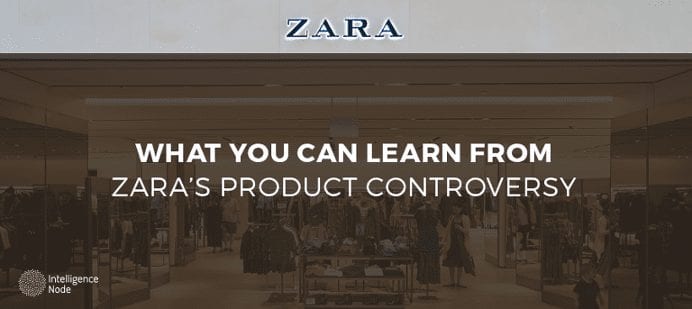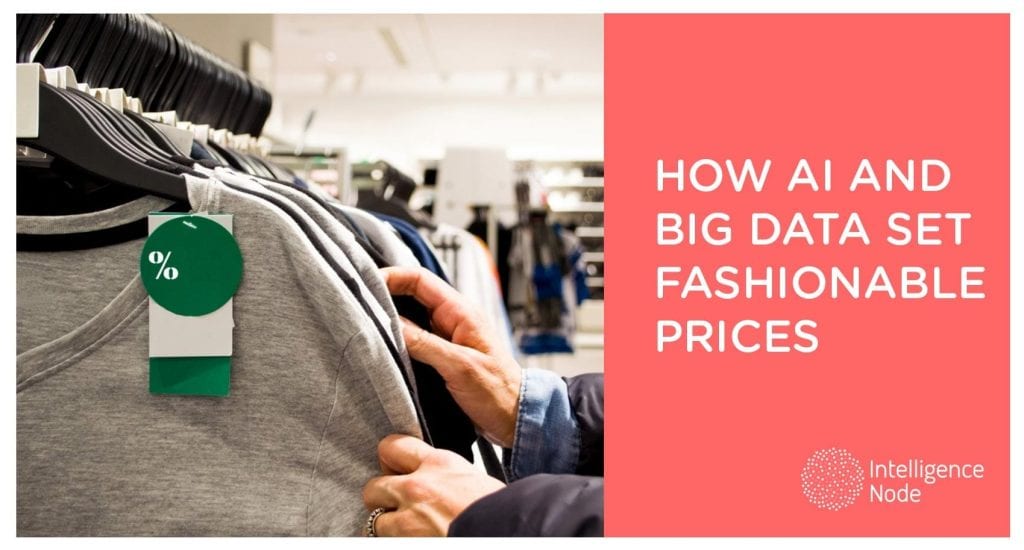Global fashion retailer Zara recently caused a public uproar following accusations that the brand copied the work of independent artists. Last week, Los Angeles-based artist Tuesday Bassen announced on her instagram account that she had filed an official complaint against Zara for copyright infringement. She joins at least a dozen artists who allege Zara stole their designs, adding their work to products without the permission or compensation of the artists.
Bassen’s case reflects how today’s consumers value transparency, honesty and integrity; and how shoppers swiftly turn to social media to vocalize their disappointment to the masses when companies stray from these principles.
How Ethical are Zara’s Product Designs?
Earlier this year, Bassen learned her designs had allegedly been copied through social media messages and posts from her fans. Bassen proceeded with legal action and recently posted her side of the story to Instagram.
“Over the past year, @zara has been copying my artwork … I had my lawyer contact Zara and they literally said I have no base because I’m an indie artist and they’re a major corporation and that not enough people even know about me for it to matter.”
In rebutting Bassen’s complaint, Zara’s lawyers stated:
“The lack of distinctiveness of [Bassen’s] purported designs makes it very hard to see how a significant part of the population anywhere would associate the signs with Tuesday Bassen.”
By comparing her designs and Zara’s products side-by-side, Bassen made it clear that there are obvious similarities. Some legal experts state the combination of text, color, and angle Bassen uses in her designs supports her claims, especially since her case involves a collection of pieces rather than a single design.
Most recently, Zara’s parent company, Inditex, responded by saying:
“Inditex has the utmost respect for the individual creativity of all artists and designers and takes all claims concerning third party intellectual property rights very seriously … The Company immediately opened an investigation into the matter and suspended the relevant items from sale.”
The Social Media Magnifying Glass Impacts Brand Trust
The case of Bassen vs. Zara is eerily reminiscent of the classic story of David and Goliath. While major corporations certainly have the legal muscle to outmaneuver artists, artists like Bassen actually tap into tremendous social power through their talent, popularity, and the very nature of their underdog story. In an era in which consumers value authentic brands, Bassen’s story inspired a social media backlash that undermines Zara’s credibility, brand trust, and consumer confidence.
The controversy may also impact Zara’s sales, as consumers are turning to social media to further expose and shame the corporation. Instagram user Phillip Ginn posted:
“If you buy from ZARA, don’t. They’ve stolen work from illustrator/designer Tuesday Bassen and who knows who else…”
Twitter user chiller 48% wrote:
“Surprising when … companies like @zara steal others’ work. The internet exists now guys. You’re going to get caught.”
Other social media users shared such hashtags as #boycottZARA and called for a class action lawsuit to bring justice to independent artists whose work Zara has allegedly copied.

Additional artists who have accused Zara of plagiarism in the past include Adam J Kurtz, Bassen’s friend. Kurtz created an image comparing the work of 12 independent artists with very similar products, including his own, on Zara’s website. In recent years, Zara has also received criticism for selling products with similar designs to high fashion brands Celine and Christian Louboutin.
Beyond Zara, companies such as Urban Outfitters and Forever21 have also faced multiple allegations of copyright infringement from independent artists in recent years.
How Your Company Can Avoid Design Disputes
As Zara is a well-known brand, it has earned international media attention for this high-profile legal dispute. Companies like yours can learn relevant lessons from Zara’s experience and the resulting PR challenges.
For instance, rather than reacting to your rivals’ product strategies, you can use data analytics to gain a deeper understanding of your consumers’ needs. Data analytics can help you anticipate and proactively plan to offer the types of products shoppers demand. You can keep your eye on the consumer while staying ahead of your competitors. In other words, you can see right through your competitors’ pricing, promotion, and catalogue strategies to help you plan an approach that is strategic and distinct from your competitors’ offerings.
(*Hint, hint — IntelligenceNode’s retail analytics software does all this.)
In this age of social media, companies like Zara need to adapt to consumers’ clear expectations of transparency and authenticity – and protect their brand by consistently demonstrating integrity. Strategies with integrity are the best way to edge forward and stay ahead of the competition.






